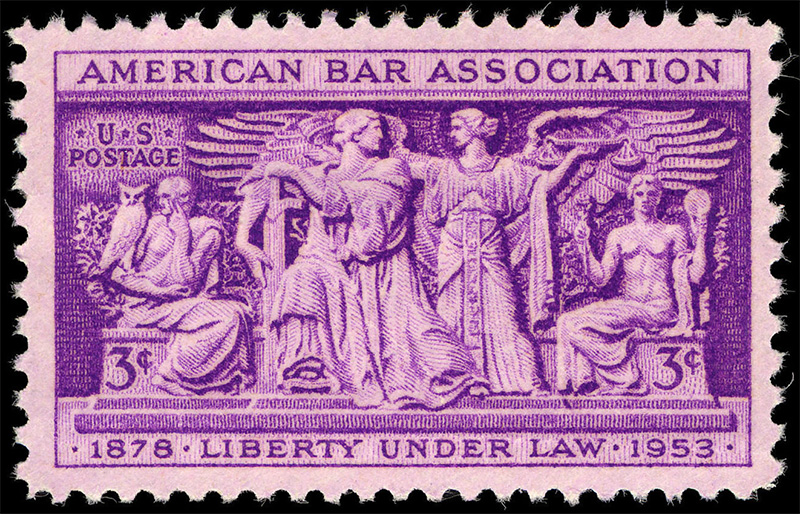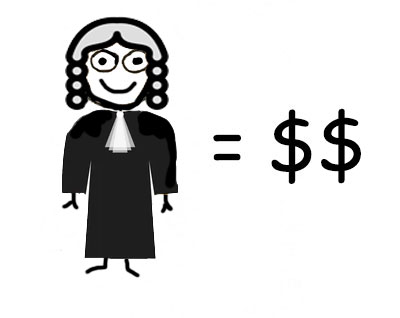
Thanks to punitive tort law, exorbitant legal fees, and authors like Scott Turow and John Grisham (and their movies), it’s difficult not to think of lawyers as real-life super people (heroes and villains) who walk among us. In the United States in particular, which holds the world record for the most prisoners at over 2.1 million for a population of only 330 million (that’s six people per hundred) and for the most lawyers at 1.35 million (that’s four people per hundred), being able to navigate cease-and-desist letters, loan agreements, and plea bargains seems both an almost godlike power and a basic necessity for avoiding fines, jail time, or outright execution.
Get a free sample proofread and edit for your English document.
Two professional proofreaders will proofread and edit your English document.
It’s little wonder that when people can’t or don’t want to hire a lawyer, they often try to write like one. They may be writing to a landlord, a company, or just an irritating neighbor, and suddenly people are brandishing those redundancies (e.g., will and testament, avow and affirm, disagree and deny) and adopting old-person snooty language (e.g., shalt, wilt, forthwith). Their sentences get longer, their pronouns disappear, and suddenly their best friend is the Party of the First Part.
And honestly, it’s quite misguided.
In fact, instead of trying to write like lawyers, we should start demanding that lawyers write like us. Once you start to pay attention to it, it’s pretty clear lawyers write poorly on purpose. (This isn’t a conspiracy theory. A lawyer will usually admit to it if you ask them.)
Why write poorly on purpose?
Time Is Money
Well, first, lawyers are paid by their time, not their clarity. They’re not going to sit there and edit their work to a polished shine. They’re just going to throw down what will work and move on to the next billable hour.
Confusion Is Money
Next, being purposefully difficult to read protects lawyers’ profits. Let’s say you have something that reads like this:
Except to the extent required by applicable law, we have no obligation to provide a re-download or replacement of any material, Digital Goods (defined in section 14.k), or applications previously purchased. We may release the Services or their features in a preview or beta version, which may not work correctly or in the same way the final version may work. (Microsoft Services Agreement)
And let’s say you want to know what that means in case you want to make your own “digital goods” that might rely on Microsoft’s “digital goods.” Unless you’ve got a law degree in your pocket, you’ll probably ask a lawyer, who will then bill you (or resent you because you’re just their in-law and shouldn’t be asking them for free work—yeah, I’m looking at you, Cynthia).
Wordiness Is Money
Although the redundancies, repetition, and overly long sentences of convoluted syntax may look like writing intended to be highly specific, the opposite is often true. If you know you’re writing something that might be challenged, you likely don’t want your writing to be clear. You want room to dodge or obfuscate and point out a vague area in your opposing lawyer’s writing to exploit.
So, let’s look at the tricks lawyers use, like putting the numeral in parentheses after the number has been spelled out, as in three (3). Seriously, what is the possible benefit of this to anyone?
Another is to adverb your writing to death: “Suddenly, the clock loudly bellowed out the undesirably sinister gong.” Or in “legal” writing, “The undesirably and irritatingly loud barking of the inadvisably adopted dog of the neighbor left us understandably confused.”
The “not uncommon” effect of the double negative is a good one. If someone has broken something and the lawyer wants to downplay it, they’ll say the object was “not unmarred” or “not left in its pristine condition.” By the way, my blue jeans are not unblue.
Defining common words is another one. So, “The Party of the First Part (i.e., the party first making a motion of the motion made on Dec. 13, 2001) rejected (i.e., denied the validity of) the motion, or court action, at that time.”
Passive Voice Is a Lot of Money

Nothing but nothing makes writing wordier or vaguer than the passive voice. It’s Politics 101. Don’t say, “I broke the law,” say, “The law was broken by me,” or just, “The law was broken,” or even better, “The law was broken by someone involved in the decision-making process.”
Passive voice pushes the actor off the page, reduces the power of accusation, minimizes the effects of action, and drowns us in words. Lawyers love that.
The rest of us don’t.
Next month: ways to write like people want, even when you’re being “official.”
Julia H.
Get a free sample proofread and edit for your English document.
Two professional proofreaders will proofread and edit your English document.
Get a free sample proofread and edit for your document.
Two professional proofreaders will proofread and edit your document.
We will get your free sample back in three to six hours!